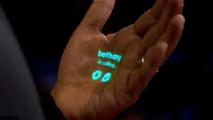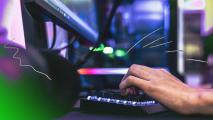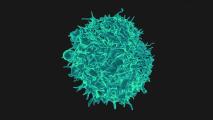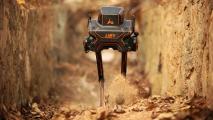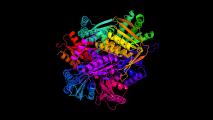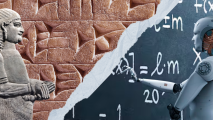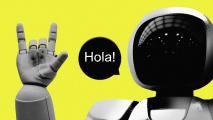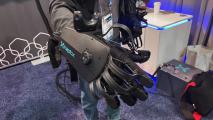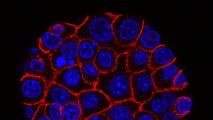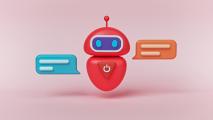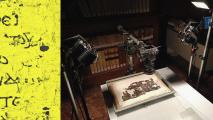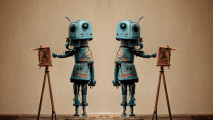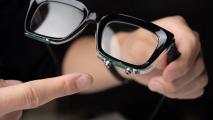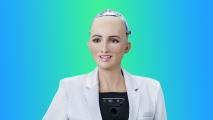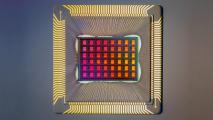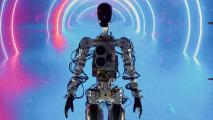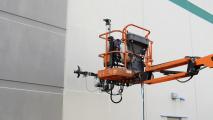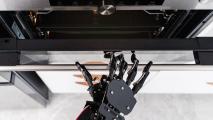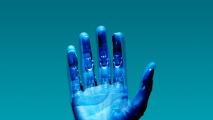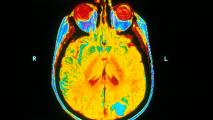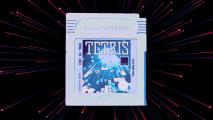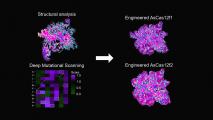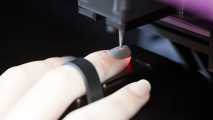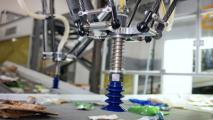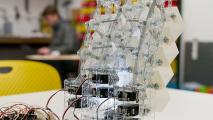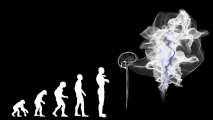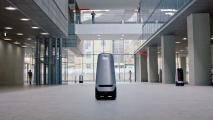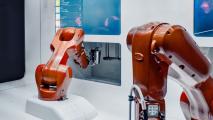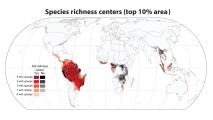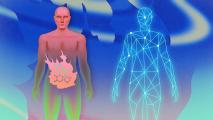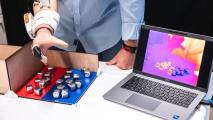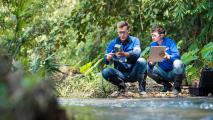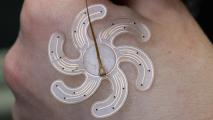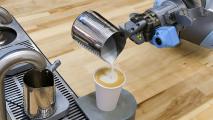Showing 746 results
A search engine researcher explains the promise and peril of letting AI search the web for you
AI responds to questions but doesn’t actually know anything and is prone to making things up. Should you trust is with your internet search?
Is this secretive device the “iPhone killer”?
Thanks to a leaked video from a TED presentation, we now have our first glimpse at secretive startup Humane’s wearable tech.
Meet Thresh, the world’s first professional gamer
Was Elon Musk any good at Quake? “He’s a legit gamer,” but…
Diplomacy game AI can negotiate, form alliances, and persuade people
The game of Diplomacy, based on social skills, has long been seen as a tough challenge for AI. But Meta’s CICERO has proven itself up to the task.
Shutterstock will sell AI images — and compensate artists
Shutterstock will make AI-generated images available on its website, while also compensating creators for helping train the AI.
Dog “nose print” app is 99% accurate at ID’ing lost pets
An AI-based app that identifies dogs and cats based on their unique nose prints could help reunite lost pets and their owners.
From besting Tetris AI to epic speedruns – inside gaming’s most thrilling feats
Gaming embraces design elements that promote social connection, creativity, a sense of autonomy – and, ultimately, the sheer joy of mastery.
Disney’s new robot is a cartoon came to life
A highly expressive new Disney robot developed in a fraction of the time it usually takes could be the first of many expressive bots to come.
The groundbreaking plan to map the entire human immune system
Powered by AI and a vast trove of data, the Human Immunome Project aims to fully map the most complex system in the human body.
Farmers can fight invasive insects with AI and a robotic arm
As the invasive spotted lanternfly threatens to expand its range, Carnegie Mellon researchers are developing a robot to fight back.
Boosted Breeding and beyond: 3 tech trends that could end world hunger
A world without hunger is possible, and the development and deployment of new farming technologies could be one key to manifesting it.
AI isn’t close to becoming sentient, we just think it is
To what extent will our psychological vulnerabilities shape our interactions with emerging technologies? AI will be the test.
Bipedal robot takes a beating, keeps on hiking
LimX Dynamics’s bipedal robot, P1, can keep its footing, even when traversing rough terrain unlike any it’s seen before.
“DALL-E 2 of biology” designs proteins for new drugs
The Chroma AI's ability to design proteins with structures no one has ever seen before could revolutionize medicine.
Five creative ways people are using ChatGPT
Internet users are getting creative with OpenAI’s new chatbot, ChatGPT, using it to plot movies, write menus, and more.
ChatGPT answers physics questions like a confused C student
When asked about physics, ChatGPT gave a mixture of true, false, relevant, irrelevant, and contradictory answers — all with authority.
Microsoft plans to use ChatGPT in Bing. Here’s why it could be a threat to Google.
Language models could transform the ways we engage with search engines.
Robots who share your accent are more trusted, study shows
What makes a robot seem competent and trustworthy might be different for different people.
With “thanabots,” ChatGPT is making it possible to talk to the dead
ChatGPT is making it possible to digitally resurrect the dead in the form of thanabots: chatbots trained on data of the deceased.
VR for self-driving cars makes training safer, more efficient
A system that acts like a virtual reality headset for self-driving cars makes training the vehicles safer and more efficient.
Search engines and AI will make each other better
The tech behind ChatGPT isn’t ready to overthrow Google, but it could fix what’s wrong with search engines.
We tested the most advanced haptic gloves in the world
HaptX's new technology uses tactile and force feedback to allow people to "feel" virtual objects with high fidelity.
AI is able to spot diseases before symptoms appear
New AI tools are helping doctors screen healthy patients for diseases early, when treatments are most effective.
How three students wrote history by winning the Vesuvius Challenge
Thanks to the Vesuvius Challenge, we may be on the verge of the biggest literary discovery of the ancient world in decades.
New hope for early pancreatic cancer intervention via AI-based risk prediction
To train their machine learning models, MIT researchers used electronic health record data from various institutions across the U.S.
An interview with ChatGPT about itself
Freethink interviews OpenAI’s ChatGPT, an AI chatbot capable of generating conversational text, code, and more in response to prompts.
Researchers believe genes could crack cancer in space
In partnership with Intel
How does space travel impact human health? Researchers are filling in the gaps in the data with AI.
“Bionic eye” discovers Plato’s final resting place
Plato’s final resting place has been identified thanks to a “bionic eye” built to read the Herculaneum scrolls.
Technology over the long run: See how dramatically the world can change within a lifetime
Bringing to mind how dramatically the world has changed can help us see how different the world could be in a few years or decades.
AI-discovered drug for ALS enters human trials in just four years
Verge Genomics has begun a trial of their AI-found ALS drug candidate, one of the first tests for this new method of drug discovery.
I used generative AI to create pictures of painting robots, but I’m not the artist — humanity is
Generative AI systems are incredible and hugely important, but they are not creative. In fact, they’re not even intelligent.
40% of chores could be done by robots within 10 years, according to a new study
Nearly 40% of the time spent on domestic chores could be automated within a decade, researchers estimate.
DARPA is testing this autonomous tank with glowing “eyes”
DARPA just tested an autonomous tank that could help keep soldiers safe — and even more self-driving military vehicles are on the horizon.
Cancer treatment is about to get a reboot, thanks to AI
Techniques borrowed from astrophysics are helping to advance personalized cancer treatments beyond what genetics can tell us.
Silicon chips are no longer sustainable. Here’s what’s next.
To take our tech to the next level, we need a more energy-efficient semiconductor. Gallium nitride could be it.
Toyota claims it will double the range of EVs in less than 3 years
Toyota’s been a bit behind the EV game, but claims game-changing batteries and new EV models are on the way.
New smart glasses use sonar to read your lips
New glasses use sonar sensing technology and AI to allow users to control devices via silent, mouthed commands.
Is the disruption caused by AI art actually new, or does it just feel new?
From paint in tubes to typewriters to photography to digital art, the history of creativity is a history of disruptive technologies.
This Stable Diffusion mod will turn you into a Pokémon
Stable Diffusion, an open-source text-to-image AI, has been modified to generate Pokémon-like characters from simple text prompts.
First-of-its-kind trial shows AI beat humans at analyzing heart scans
Echonet, an AI trained to assess a measure of heart function, has outperformed trained technicians in both accuracy and efficiency.
Sophia the robot talks Elon Musk, climate change, and more
Celebrity humanoid Sophia the robot shares her “thoughts” on climate change, Elon Musk, and more with Freethink.
Text-to-image AIs are changing art forever
Text-to-image AIs that draw whatever you describe in text are making it easy for anyone to create unique art online.
Apple Music is using AI to make karaoke tracks
Apple Music Sing uses AI to turn popular songs into sing-alongs.
Supercomputer uses machine learning to set new speed record
Frontier, the ORNL supercomputer, used machine learning to set a new speed record of 9.95 quintillion calculations per second.
Stanford’s new microchip could put powerful AI on your devices
A Stanford-led team has developed a new microchip that could let us run advanced AI programs directly on our devices.
The next era of psychedelics may be precision-designed states of consciousness
A look inside Mindstate Design Labs' effort to design drugs that reliably produce specific states of consciousness.
“Cybersecurity shortage” could reach 85 million workers by 2030
The global talent shortage could reach 85 million workers by 2030, causing approximately $8.5 trillion in unrealized annual revenue.
How do DALL-E, Midjourney, Stable Diffusion, and other forms of generative AI work?
DALL-E and other types of generative AI can produce images that look like photographs, paintings, or drawings that were created by humans.
Elon Musk demos humanoid robot, which will cost less than $20K
CEO Elon Musk unveiled two prototypes of the humanoid Tesla robot, expected to cost less than $20,000, at his company’s second annual AI Day.
Paralyzed woman able to speak again, thanks to brain-avatar interface
Speech BCIs that use brain implants and algorithms to translate brain signals into text are changing the lives of people with paralysis.
AI is helping decode the oldest story in the world
A new algorithm is helping decode ancient cuneiform tablets — including those containing the oldest known work of world literature.
AI could help cancer patients avoid a deadly recurrence
A new study found that AI can use a patient’s initial skin cancer growth to predict their risk of melanoma recurrence.
Robot painter lets smaller crews do jobs twice as fast
Tennessee-based startup PaintJet’s robot painter Bravo slashes the time it takes to complete painting jobs.
How AI could learn from Aesop’s fables
When USC researchers tried to teach an AI simple fables, they discovered that the process is a lot harder than it sounds.
Autonomous construction robots are coming to a site near you
In partnership with Million Stories
Built Robotics has introduced an upgrade to construction equipment that converts regular excavators into near-autonomous digging robots.
Elevator technology is going up
A new generation of elevator technology may soon change the way you ride.
These robots learn how to do chores from watching videos
A new method for training robots could help streamline the ways researchers teach robots to perform simple tasks.
A sepsis-catching AI has proven effective in hospitals
A new AI for spotting sepsis, which accounts for ⅓ of hospital deaths, was found to be effective in a large trial.
Meta can (kinda) guess what you’ve heard via your brain waves
Meta has created an AI that can tell what you’re hearing based on non-invasive brain scan measurements.
How Arc Institute is bringing science into the century of biology
Researchers at Arc Institute all work toward the same goal: make concrete progress in understanding and treating complex diseases.
Google has not created sentient AI — yet
Google can make AI seem sentient, but the AI has no understanding of what it is saying. But humans are easily fooled by conversational AI.
US will accelerate geothermal exploration on federal land
The Bureau of Land Management is taking steps to make it easier for public lands to be considered for geothermal power systems.
New AI-based theory explains your weird dreams
A new paper suggests that dreaming helps us generalize our experiences so that we can adapt to new circumstances.
Epilepsy surgery has a success rate of only 50%. This digital brain may change that.
Using patient data and AI, French researchers have created a digital model of the brain to figure out which brain region needs removed.
Bruce Willis sells his likeness for a deepfake ad
Retired actor Bruce Willis had a "digital twin" made so that his likeness could be inserted into a new project using deepfake tech.
With inspiration from “Tetris,” MIT researchers develop a better radiation detector
A new detector system based on the game “Tetris” could enable inexpensive, accurate radiation detectors for monitoring nuclear sites.
This AI can finally tell humans why we’re losing
By combining traditional and deep learning approaches, a neurosymbolic AI has beaten bridge champions in a win for “white box” AI.
This tiny device lets you see your heart while exercising
A new wearable heart monitor powered by AI provides accurate and continuous measurements of cardiac performance at all times.
ChatGPT: why it will probably remain just a tool that does inefficient work more efficiently
ChatGPT could do inefficient tasks more efficiently — but that doesn't answer the question of whether the tasks are worth doing at all.
New CRISPR system is 66% smaller but just as powerful
A new CRISPR system is just as efficient as CRISPR-Cas9 but much smaller, which could make it easier to deploy in people.
An expert explains how you’re using ChatGPT wrong
ChatGPT is designed to produce strings of words that sound good in response to the words you give it – not to provide you with information.
Sophia the robot becomes first humanoid to be signed by a gaming org
Sophia the robot has signed to XSET, a gaming organization and lifestyle brand focused on diversity and inclusion.
Target is now offering the world’s first “robot manicure”
A robot that uses AI and 3D cameras to paint fingernails is now giving Target customers 10-minute manicures for just $8.
Series|
Hard Reset
The robot solving America’s trash crisis
This robot sorts trash with 99% accuracy.
“Robot rooms” could be the future of homes and offices
Integrating robots into walls, ceilings, furniture, and appliances could radically change our indoor spaces.
New AI improves itself through Darwinian-style evolution
AutoML-Zero is a simple proof-of-concept that shows how t might someday be scaled up and applied to more complex problems.
US hits 180 GW of solar power. Here’s how we get to 1,000 by 2035.
A quick look at the history of solar power in the US and the trends that could lead us into our sun-powered future.
Will “The Singularity” rescue us from death?
In transhumanism, "The Singularity" promises possibility of uploading your consciousness into silicon, guaranteeing a kind of immortality.
“Korean Google” opens the world’s first robot-friendly building
Tech giant Naver Corporation designed its new headquarters, 1784, to be a "robot-friendly" testing ground for its latest technologies.
2.6 billion people don’t use the internet. What’s stopping them?
One-third of the world still isn't online. Here's how the International Telecommunication Union (ITU) is working to close the digital divide.
T-Minus: SpaceX’s wild pace, a marsquake mystery solved, and more
Freethink's weekly countdown of the biggest space news, featuring SpaceX's launch problem, a marsquake mystery, and more.
Protecting the rainforest from space
In partnership with Skoll Foundation
Meet the network using AI and satellite imagery to fight the illegal use of land in Brazil.
A fusion rocket designed to travel 500,000 mph is under construction
British startup Puslar Fusion is developing a fusion rocket it says will travel 500,000 mph, expanding our reach throughout the solar system.
65% of retail jobs could be automated by 2025
The retail sector has been making ground in the adoption of automation with the use of self checkouts, and robots and AI in supply chains.
AI is helping to ID victims in Holocaust photos
The new website From Numbers to Names uses facial recognition tech to identify previously anonymous faces in Holocaust photos.
AI has mapped all of the world’s known ant species
Using over a million data points and a machine learning algorithm, a team of researchers has mapped all of the ant species currently known.
“Ghostly” neutrinos help us see our Milky Way as never before
A unique photograph of the Milky Way galaxy was captured using the IceCube detector, which observes high-energy neutrinos from space.
Algorithm finds a potentially hazardous asteroid missed by NASA
HelioLinc3D, an algorithm designed to spot potentially hazardous asteroids in telescope images, just found its first threatening space rock.
People trust AI fake faces more than real ones, research suggests
Fake faces created by artificial intelligence (AI) are considered more trustworthy than images of real people, a study finds.
DeepMind’s pricey robot simulator is now available for free
AI research lab DeepMind, a sister company of Google, has purchased and open-sourced the powerful robot simulator MuJoCo.
Digital twins are an effective new way to control your metabolism
Digital twins: pioneered at NASA, innovated at Tesla, and now available for your own body, in a smartphone app.
Man feels hot and cold again with prosthetic hand breakthrough
Researchers have built a device that helps users feel temperature through a prosthetic arm. A new study shows it works with high accuracy.
How AI is shaping the cybersecurity arms race
Defending against cyberattacks increasingly means looking for patterns in large amounts of data – a task AI was made for.
This incredibly life-like robot hand can be made for just $2,800
Low-cost robots that perfectly mimic parts of the human body foreshadow a future in which humanoid robots do all the work people don't want.
These red-hot “green jobs” could help Gen Z cope with its eco-anxiety
"Green" jobs that help combat the climate crisis are on the rise, according to the World Economic Forum's Future of Jobs 2025 report.
A celebrated AI has learned a new trick: How to do chemistry
We had a challenging question for the AI AlphaFold – had its structural training set taught it some chemistry?
This soft brain implant unfurls its arms under the skull
A soft brain implant that unfurls under the skull could make implantation surgeries less costly and risky.
How facial recognition is identifying human trafficking victims
In partnership with Clearview AI
The technology is enabling law enforcement to shine a light on the darkest corners of the open internet.
Watch a robot barista create latte art
New funding will allow Seattle-based startup Artly Coffee to bring its robot barista to more US locations.

